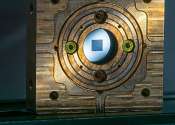Researchers store a quantum bit for a record-breaking 20 milliseconds
Computers, smartphones, GPS: quantum physics has enabled many technological advances. It is now opening up new fields of research in cryptography (the art of coding messages) with the aim of developing ultra-secure telecommunications ...









